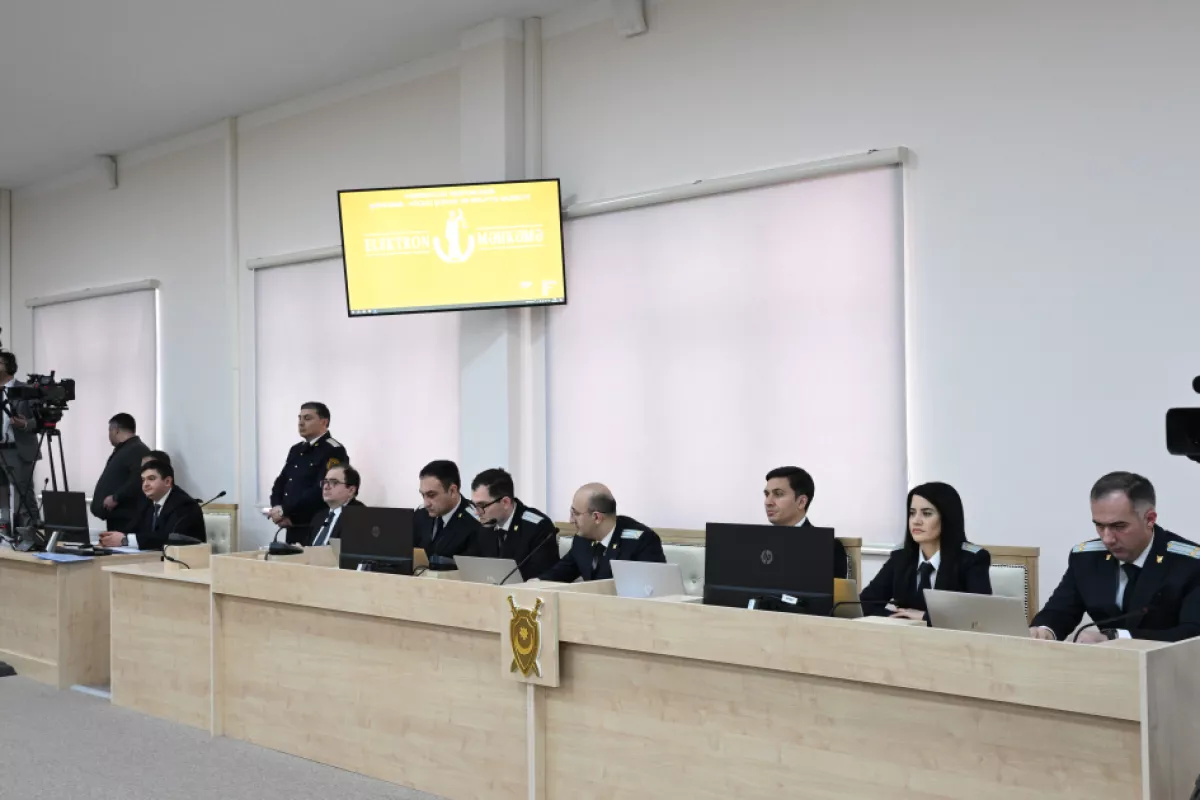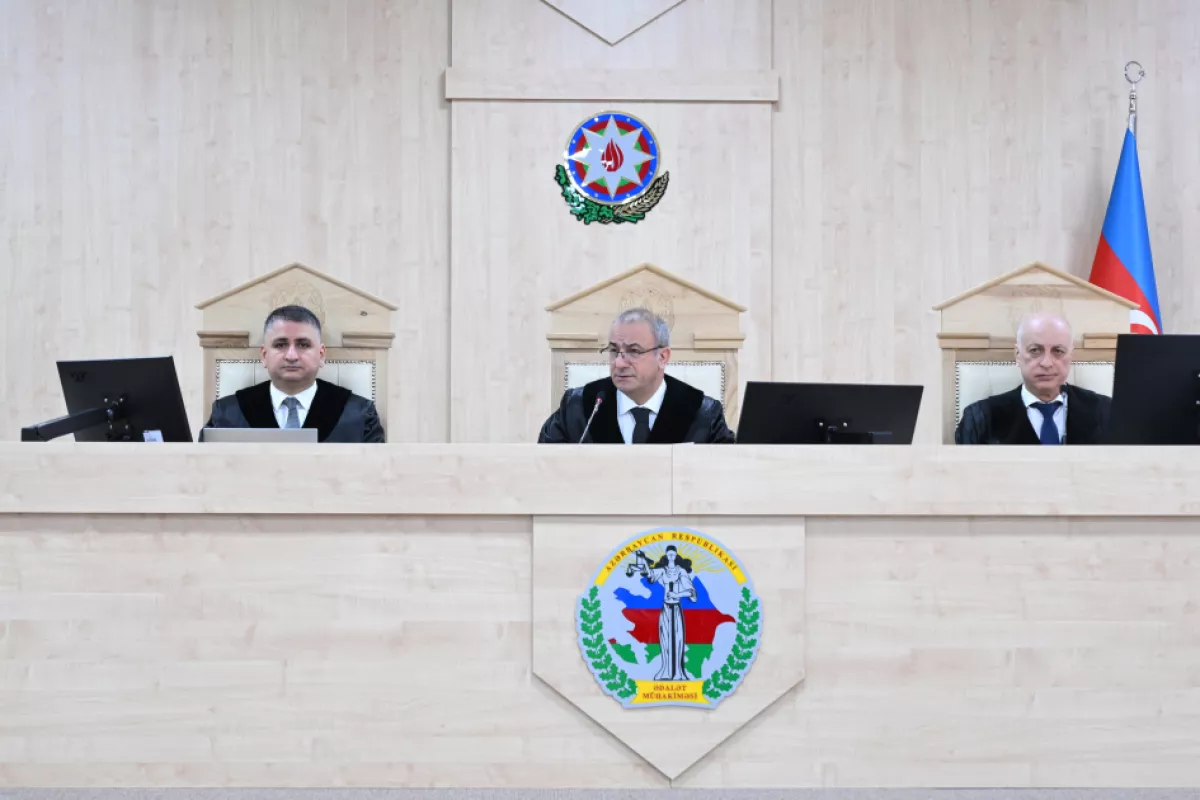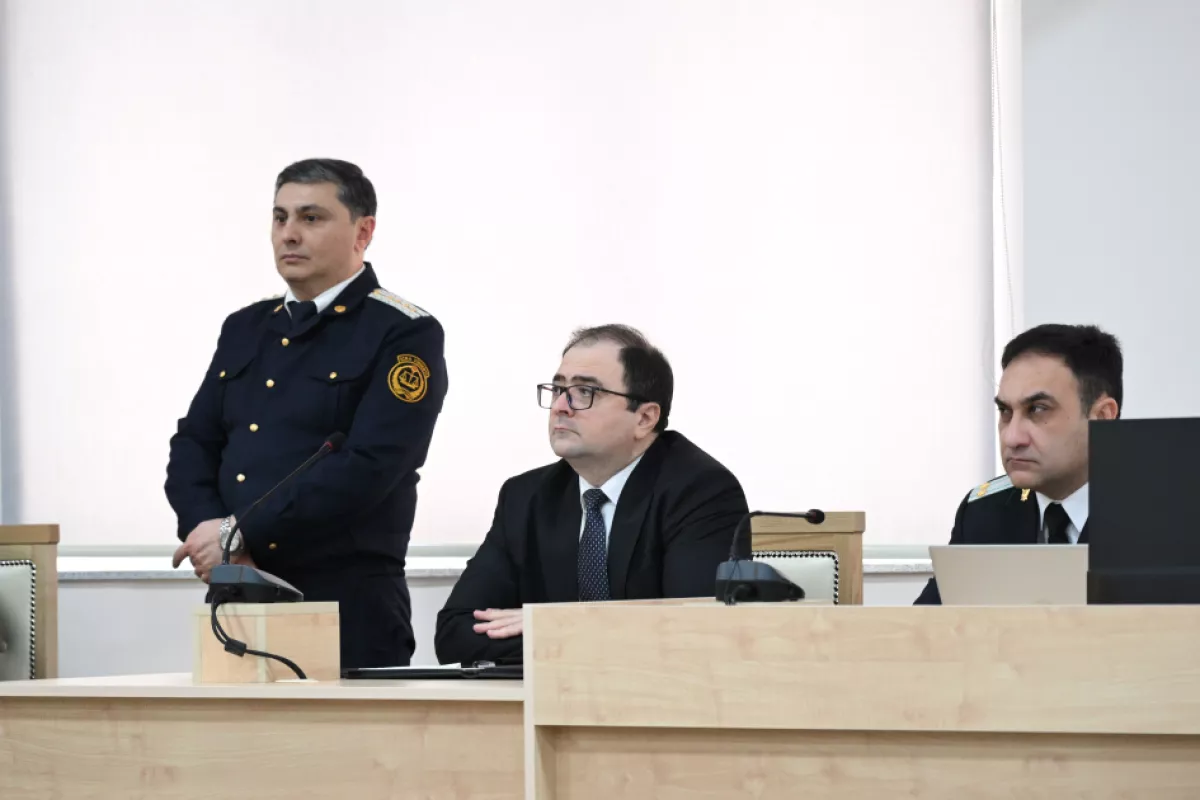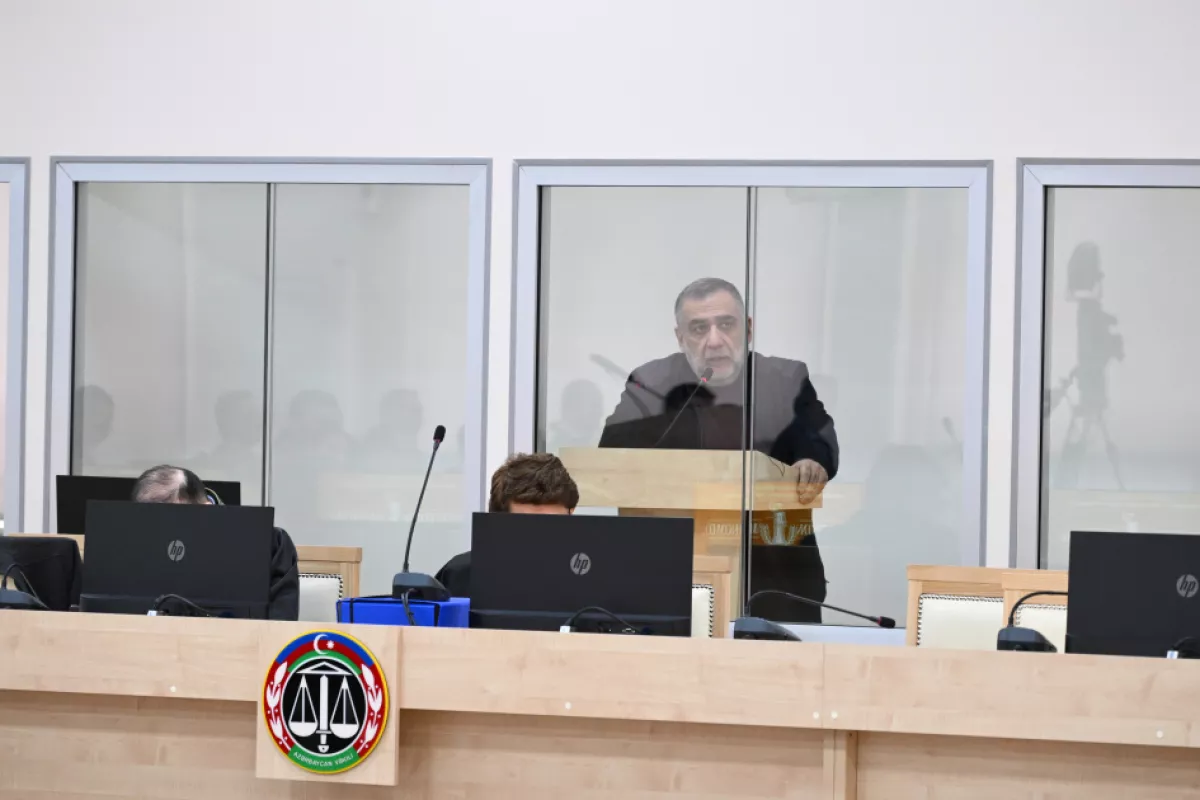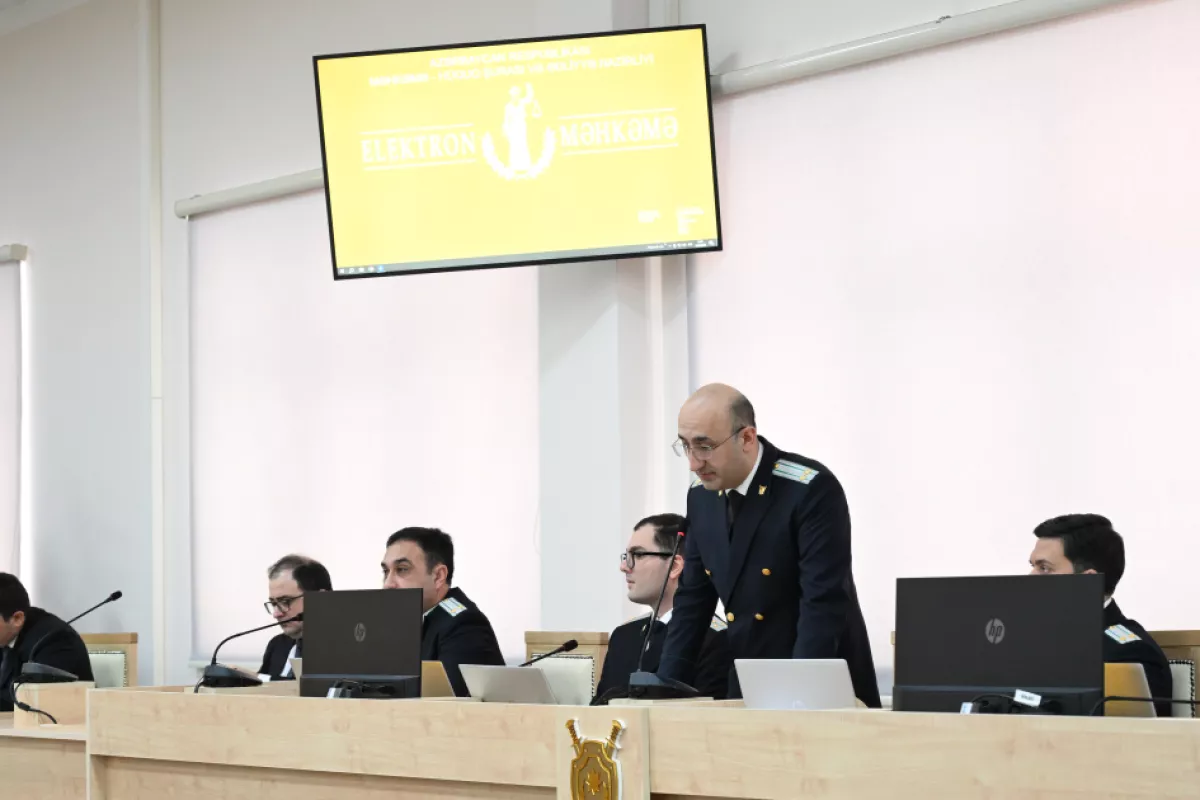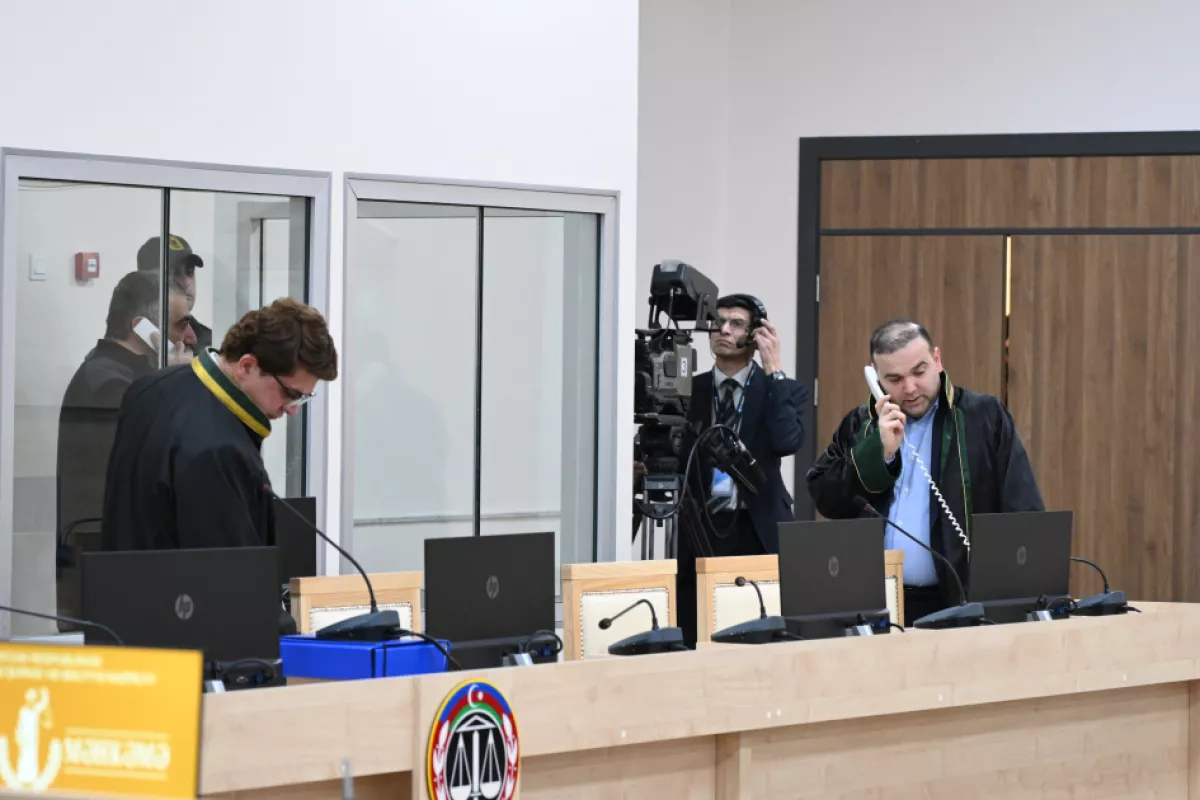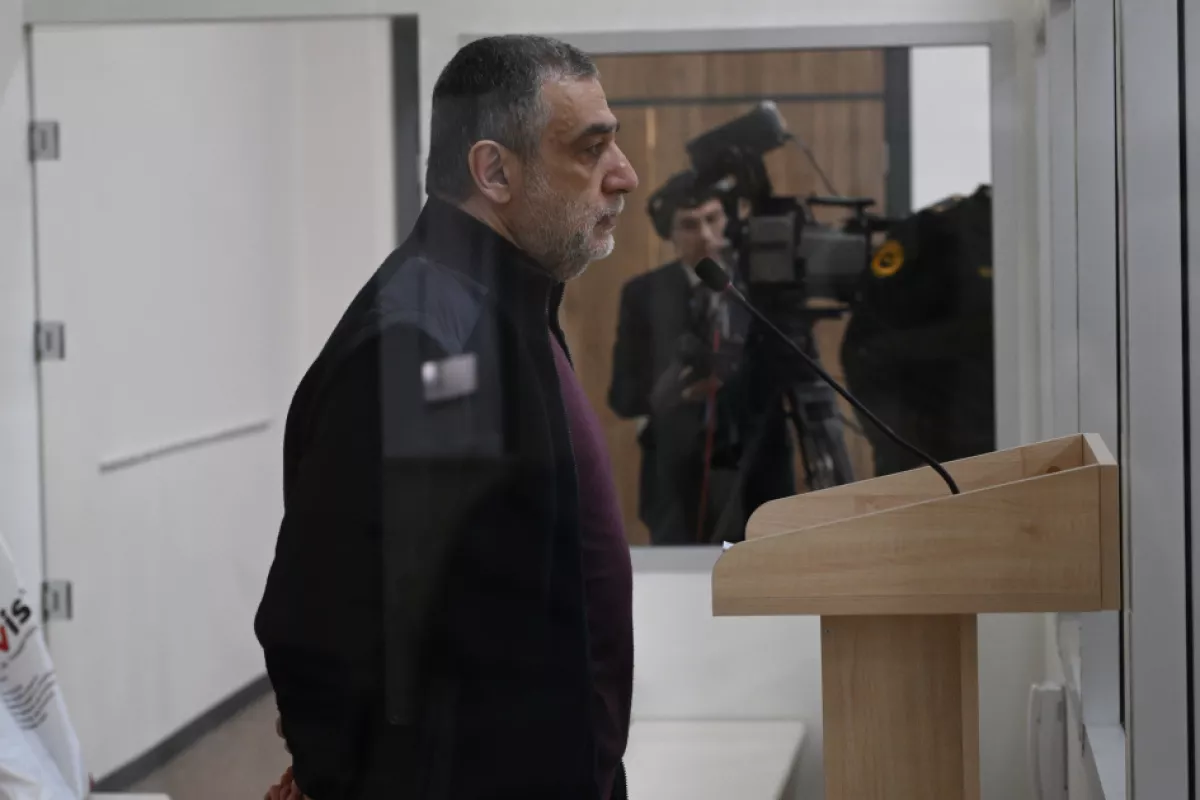Azerbaijan proceeds with terrorism and war crimes case against Ruben Vardanyan PHOTO
The trial hearing on the criminal case of Ruben Vardanyan, an Armenian citizen accused under various articles of the Criminal Code of the Republic of Azerbaijan, including torture, mercenarism, violation of the laws and customs of war, terrorism, financing of terrorism, and other charges, continued on February 10.
The open court hearing was held at the Baku Military Court, located in the Baku Court Complex, under the chairmanship of Judge Zeynal Aghayev, with Anar Rzayev and Jamal Ramazanov as panel members (reserve judge Gunel Samadova). The accused was provided with a translator in the language he understands, namely Russian, as well as with defence lawyers, Caliber.Az reports via Azertag.
The hearing was attended by victims, their legal successors and representatives, prosecutors representing the state prosecution, as well as the Head of the Apparatus of the Cabinet of Ministers, Rufat Mammadov, acting as the representative of the victim on behalf of the Azerbaijani state.
Ruben Vardanyan's defence lawyer, Avraam Berman, filed a motion requesting conditions for a confidential meeting with the accused. The court granted the motion, allowing the accused to meet privately with his lawyer, and a recess was announced.
After the recess, the hearing resumed.
The presiding judge announced that new interpreters had been appointed for the trial. Neither the prosecution nor the defence objected to their participation.
Subsequently, Ruben Vardanyan argued that the rejection of his previous motions indicated the judges' interest in the criminal prosecution and challenged the composition of the court. His defence lawyers supported the objection.
Senior Assistant to the Prosecutor General, Vusal Aliyev, responded to the motion, stating that Azerbaijan’s criminal procedural legislation defines specific grounds for challenging a judge, and such objections must be substantiated.
At the same time, according to the legislation, an objection to a judge can only be raised if there is concrete and reliable evidence confirming their interest in the criminal prosecution. The prosecutor stated that, at this stage of the proceedings, the defence had not presented specific evidence proving the court panel's interest in the prosecution; therefore, the objection should be left without consideration.
Rufat Mammadov, Head of the Apparatus of the Cabinet of Ministers, acting as the representative of the victim, along with other victims present in court, also requested that the objection be left without consideration.
The court then retired for deliberation on the objection. Following the deliberation, the decision was announced, and the objection was left without consideration.
Ruben Vardanyan’s lawyer then requested that the accused be given another opportunity for a confidential meeting. The judge granted the request, and a recess was announced for this purpose.
After the recess, the trial resumed with the prosecutors presenting the concluding part of the indictment.
The indictment outlined episodes related to criminal acts committed in connection with the occupation of Azerbaijan’s sovereign territories as a result of an aggressive war carried out by a criminal organisation. This organisation operated under the direct participation, orders—both oral and written—, instructions, and guidance of the Armenian state and its military forces. It received material, technical, and personnel support, was centrally managed, and acted under strict control, all in violation of domestic and international legal norms, with the aim of conducting military aggression against Azerbaijan.
The indictment named key figures involved in the leadership, direct, and indirect participation in this criminal enterprise, including Robert Sedraki Kocharyan, Serzh Azati Sargsyan, Vazgen Mikayeli Manukyan, Vazgen Zaveni Sargsyan, Samvel Andraniki Babayan, Vitali Mikayeli Balasanyan, Zori Hayki Balayan, Seyran Musheghi Ohanyan, Arshavir Surenovich Karamyan, Monte Charles Melkonian and others.
State prosecutor Vusal Abdullayev emphasised that, according to the charges, the aggressive war waged by the Armenian state, its armed forces, and illegal armed groups resulted in the occupation of Azerbaijan’s sovereign territories. These included the city of Khankendi, as well as the districts of Kalbajar, Shusha, Lachin, Khojaly, Khojavend, Zangilan, Jabrayil, and Gubadly in their entirety. Additionally, Karki village in Sadarak district of the Nakhchivan Autonomous Republic and seven villages in the Gazakh district—Baghanis Ayrim, Ashaghi Askipara, Kheyrimli, Barkhudarli, Sofulu, Gizilhajili, and Yukhari Askipara—along with the district centres and several villages of Aghdam and Fuzuli, as well as a number of villages in Tartar district, were occupied.
During the occupation, these areas were subjected to widespread destruction through arson, shelling with artillery systems, explosions, and other physical means. Additionally, acts of looting, robbery, vandalism, and plundering were committed, further contributing to the devastation.
As a result of the occupation, 12 cities, 18 settlements, and 895 villages—totalling 925 residential areas—of Azerbaijan’s sovereign territory were seized and remained under occupation for many years. Consequently, damages exceeded 20 billion manats ($11.8 billion), including over 19 billion manats ($11.2 billion) in losses related to 37,168 properties belonging to both private individuals and the state, as well as more than 906 million manats ($533 million) in damage to historical and cultural monuments, mosques, churches, museums, historical buildings, and fortresses.
State prosecutor Tarana Mammadova continued announcing the concluding part of the indictment, detailing cases of civilians forcibly disappeared during the occupation, as well as facts regarding prisoners and missing persons. Meanwhile, Nasir Bayramov, head of a department within the Prosecutor General’s Office responsible for public prosecution, outlined the use of mercenary fighters and the severe damage inflicted on Azerbaijan’s economy and environment.
Given the extensive volume of the indictment, it was announced that its reading would continue in the next session.
The next court hearing is scheduled for February 13.
Ruben Vardanyan has been charged under the Criminal Code of the Republic of Azerbaijan for multiple offences, including Article 100 (Planning and waging an aggressive war), Article 107 (Deportation or forcible displacement of the population), Article 109 (Persecution), Article 112 (Unlawful deprivation of liberty in violation of international law), Article 113 (Torture), Article 114 (Mercenarism), Article 115 (Violation of the laws and customs of war), Article 116 (Violations of international humanitarian law during armed conflicts), Article 214 (Terrorism), and Article 214-1 (Financing of terrorism).
Additionally, he is accused under Article 218 (Establishing a criminal organisation), Article 228 (Illegal acquisition, possession, transportation, and sale of weapons, ammunition, explosive substances, and devices), Article 270-1 (Acts threatening aviation security), Article 278 (Violent seizure and retention of power, forcible alteration of the constitutional order), Article 279 (Creation of armed groups and formations not provided for by law), and Article 318 (Illegal crossing of the state border of the Republic of Azerbaijan), along with other charges.
By Vugar Khalilov




